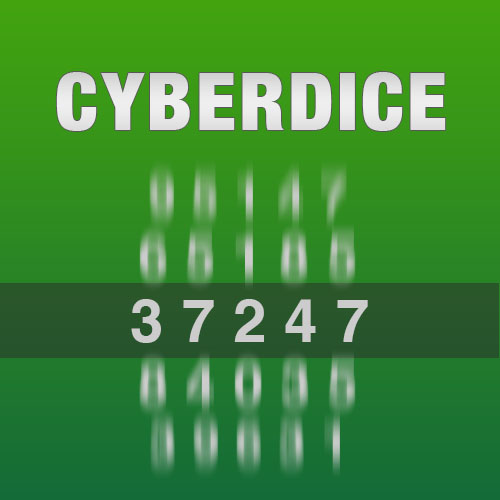- Games
-
Dice
-
CyberDice
-
Keno
-
Limbo
-
Quests
- Finance
- Cashier
- Exchanger
- Faucet
- VIP Club
- Affiliate
- Daily reward
- Services
- From $0.63 / month VPN service
- Profile & Settings
- My profile
- Settings
- Other
- Verifier
- FAQ
- Live Support
- Telegram channel
- Telegram group
Dogecoin (DOGE) information

Dogecoin (DOGE) Logo
Understanding Dogecoin (DOGE)
Dogecoin (DOGE) is an open-source, peer-to-peer cryptocurrency, classified as an altcoin. It was introduced in December 2013, adopting the image of a Shiba Inu dog from the "Doge" meme as its logo. The technical foundation of Dogecoin's blockchain is rooted in Litecoin's technology. Characterized by a scrypt algorithm, Dogecoin is recognized for its relatively low cost and limitless supply.
Essential Points to Remember
- Dogecoin is an open-source digital currency, introduced in 2013 by creators Jackson Palmer and Billy Markus.
- The logo of Dogecoin showcases a Shiba Inu, a breed of dog from Japan.
- Dogecoin's technical foundation stems from Litecoin, employing identical proof-of-work technology.
- The cryptocurrency has a devoted community of backers who engage in its trading and utilize it as a tipping currency for content on social media platforms.
The Journey of Dogecoin
Dogecoin, initially a light-hearted experiment, rapidly gained traction among users. By the end of 2017, it found itself amidst the cryptocurrency boom that saw a significant appreciation in the value of digital coins.
Dogecoin still maintains a dedicated user base who trade the currency and use it for tipping on platforms like Twitter and Reddit.
Dogecoin can be purchased and sold on various cryptocurrency exchanges, and users can choose to store their Dogecoin in a digital wallet or directly on the exchange.
Jackson Palmer, a product manager at Adobe Inc.'s Sydney office, introduced Dogecoin in 2013 to mock the escalating hype around digital currencies. Encouraged by the positive reception and growing interest on social media, he proceeded to purchase the domain dogecoin.com.
Billy Markus, an IBM software developer, had ambitions to create a digital currency but struggled with its promotion. Consequently, he collaborated with Palmer to develop the software behind Dogecoin.
Markus based Dogecoin's code on Luckycoin, a derivative of Litecoin, and initially employed a random reward for block mining. However, this was switched to a fixed reward system in March 2014. Dogecoin utilizes Litecoin's scrypt technology and operates as a Proof-of-Work (PoW) coin.
Dogecoin Versus Bitcoin
Presenting itself as a more relaxed and "fun" iteration of Bitcoin, Dogecoin features a Shiba Inu dog as its logo. This informal image resonated with the growing cryptocurrency community at the time. Its use of scrypt technology, along with its unlimited supply, painted Dogecoin as a quicker, more adaptable, and user-friendly version of Bitcoin.
Dogecoin is classified as an "inflationary coin," contrasting with cryptocurrencies like Bitcoin, which are deflationary due to a limit on the total number of coins that can be created. Every four years, the number of Bitcoin entering circulation through mining rewards gets cut by half, consequently halving its inflation rate until all coins are mined.
In 2014, the Dogecoin community made some notable donations, including 27 million Dogecoins (around $30,000) to finance the Jamaican bobsled team's trip to the Sochi Winter Olympic Games. They also contributed $11,000 worth of Dogecoin to construct a well in Kenya and $55,000 in Dogecoin to sponsor NASCAR driver Josh Wise.
Dogecoin's Mainstream Journey
Dogecoin witnessed a soaring value during the crypto bubble that climaxed at the end of 2017, and like others in the crypto space, it experienced a downturn in 2018.
In the crypto bull run of 2017 to 2018, Dogecoin reached a market capitalization of over $1 billion for the first time. The summer of 2019 saw Dogecoin enthusiasts rejoicing when the cryptocurrency exchange Binance listed the coin. Speculations also rose when Tesla, Inc.'s (TSLA) CEO Elon Musk seemed to endorse the coin through a cryptic tweet.
Though Dogecoin's infrastructure wasn't the central focus for volunteer coin developers, the coin continues to exist and trade, courtesy of its active community of miners.
Elon Musk publicly backed Dogecoin in 2021, revealing that he was collaborating with the coin's developers to enhance transaction efficiency. The SpaceX founder even conducted a social media poll, asking whether Tesla should accept Dogecoin as payment.
In October 2021, movie theatre chain AMC Entertainment Holdings, Inc. (AMC) stated that they would accept Dogecoin for digital gift card purchases, adding another layer of utility to the meme-inspired cryptocurrency.
As of April 2023, Dogecoin held the 8th spot in market cap ranking, boasting a market capitalization of $11.4 billion.
Where to Trade Dogecoin?
Dogecoin (DOGE) can be bought by setting up an account with one of several cryptocurrency exchanges, including Coinbase, Binance, and Kraken. Traditional brokerage Robinhood, which also facilitates crypto trades, supports Dogecoin as well.
Usage of Dogecoin
Dogecoin can be spent with any retailer that opts to accept it. Various types of businesses, including Elon Musk's SpaceX and the Dallas Mavericks, accept DOGE. Many Dogecoin holders also use their DOGE to tip content creators on platforms like Reddit and other social media.
Elon Musk and Dogecoin
In July 2022, Elon Musk restated his backing for the cryptocurrency, mentioning that he owns Dogecoin. He revealed that Tesla accepts Dogecoin as payment and that SpaceX would also accept it in the future.
The Final Take
Dogecoin (DOGE), a peer-to-peer, open-source cryptocurrency, was established in 2013. Investors can acquire Dogecoin via cryptocurrency exchanges including Coinbase, Binance, and Kraken. As of April 2023, Dogecoin had a market capitalization of $11.4 billion.
Games where you can win  Dogecoin (DOGE):
Dogecoin (DOGE):
Loading





